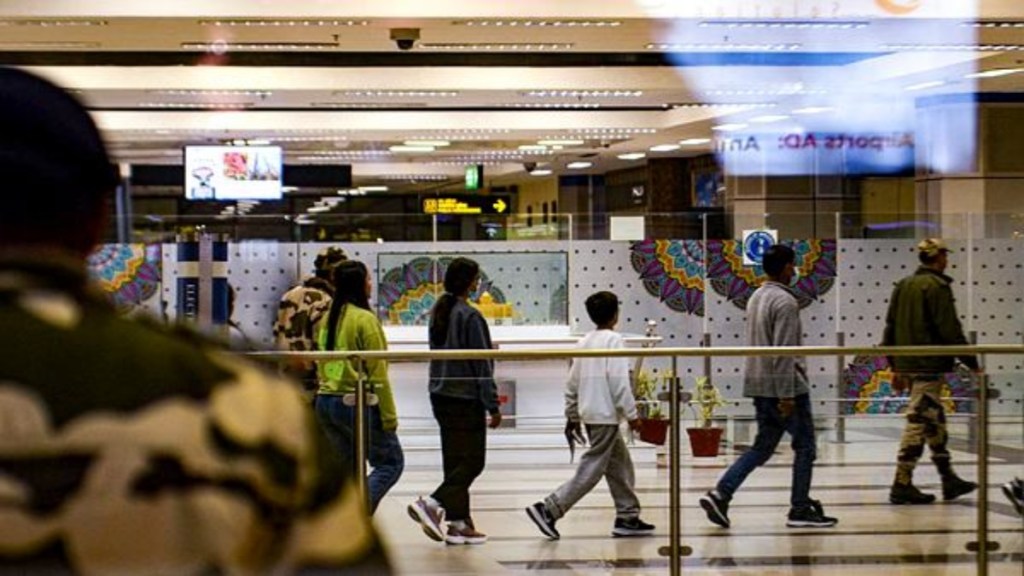Mandeep Singh’s dream of a better life for his family in Amritsar turned into a nightmare when he was arrested by US Border Patrol on January 27 while attempting to enter the United States illegally via Tijuana, Mexico. He was one of 116 Indians deported on a US military aircraft that landed in Amritsar late Saturday, marking the second batch of deportees sent back amid a crackdown on illegal immigration by the Donald Trump administration. A third batch of 112 deportees arrived on Sunday night.
Mandeep, 38, had been promised a legal entry into the US by his travel agent. Instead, he was put on the “donkey route,” an illegal and perilous pathway used by migrants to enter the US. Mandeep showed reporters videos of the treacherous journey, detailing the hardships he endured. The route took him through the jungles of Panama, where he and others faced danger from snakes, crocodiles, and other wildlife. They went days without proper food, surviving on half-baked bread and noodles, while constantly fearing for their lives.
Lovepreet Singh, a deportee who returned with Mandeep, shared similar experiences, recounting how they were beaten by smugglers, known as “donkers,” and had to brave the dangerous Panama jungles, evading wildlife and enduring physical abuse. “It was too dangerous to traverse,” Lovepreet said, highlighting the severe conditions they faced.
The families of deportees, including Mandeep, had spent large sums to secure their loved ones’ journey to the US. Mandeep paid Rs 40 lakh in two installments to his agent, who promised him a legal entry within a month. The journey began in August, starting with a flight from Amritsar to Delhi and eventually leading to Suriname. There, sub-agents demanded another Rs 20 lakh, paid by Mandeep’s family. The group then embarked on a long, grueling journey through multiple countries, including Guyana, Bolivia, and Ecuador, before reaching Panama.
The group spent 13 days crossing the dangerous jungles of Panama, traveling 12 hours a day while navigating treacherous canals and facing extreme exhaustion. Mandeep described how some people were given sticks to fend off dangerous reptiles, but many struggled to survive the harsh conditions. “We ate half-baked ‘rotis’ and sometimes noodles. Proper food was a distant thing,” he said.
After crossing Nicaragua and Honduras, the group finally reached Tijuana, Mexico, where Mandeep’s beard was forcibly shaved, violating his Sikh identity. On January 27, the group was arrested by US authorities while attempting to sneak into the US. They were detained before being deported.
Lovepreet, who left his home in Gurdaspur a year ago, and other deportees described similar brutality. “We were taken in a container to Mexico, and we weren’t even allowed to answer nature’s call. If we asked, we were beaten,” he said.
Another deportee, 20-year-old Nishan Singh from Kapurthala, shared a harrowing account of spending 16 days in the jungle without food, surviving on water. “Our phones and personal belongings were taken away,” he said. His family had spent Rs 40 lakh to send him to the US, hoping for a better life.
The first batch of deportees, 104 illegal Indian immigrants, arrived in Amritsar on February 5, as part of the ongoing crackdown on illegal immigration. The plight of these deportees highlights the dangers faced by those attempting to migrate illegally in search of a better future.
(With PTI Inputs)

